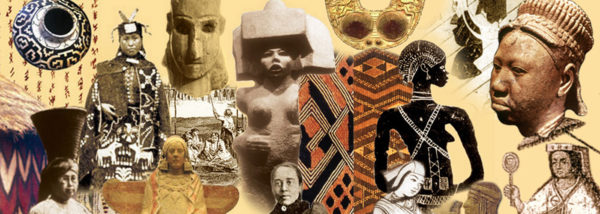This audio talk (stream below) delves into female powers which remained active in the patriarchal Hittite empire: a class of priestesses called the “Old Women” or “Wisewomen” or “Magic Women” (possibly “Midwives”) who were recorded in the archives of temples, but were later driven from the royal courts; a sovereignty goddess called “Throne” or “Altar Stand”, and her links to “the infernal, ancient divinities” who hold mirrors full of images, andspindles which are “spinning out the years of the king.” We look at Hittite priestess-queens whose title was Tawananna, and whose power stood independent of the king, as their terms extended past his lifetime, to the end of their lives. One of these queens was Puduhepa, a Hurrian priestess of Ishtar who married the future king Hattusili III, and exerted considerable power as a judge and diplomat, as shown by her correspondence with queen Nefertari of Egypt.

The throne-goddess Hanwasuit was used by the kings to legitimize their rulership. One of them boasts, “To me, the king, the Throne has brought from the sea, power to govern and a carriage. He sends an eagle to a forested region to look for the ancient fate goddesses Isdustaya and Papaya who hold his destiny in their spindles. They often appear with the fateful Gulses (or Gulzannikes) who assign destiny and are creator beings, and with the Hannahannes, “Grandmothers,” or the singular great goddess HannaHanna. A few tidbits about her, mostly a shadowy figure with only a few fragments of stories surviving
The Hittites were definitely a patriarchal society, which explains the eventual hounding of the “Old Women” from the palace. You can read details about the male dominant customs, with a sexual double standard, in the article “The Lives of Hittite Women in the Late Bronze Age” by Debbie Turkilsen (on Academia.edu, which is free but you have to register) or more accessibly, in this article by Judith Starkson.
000 results (0.78 seconds)

